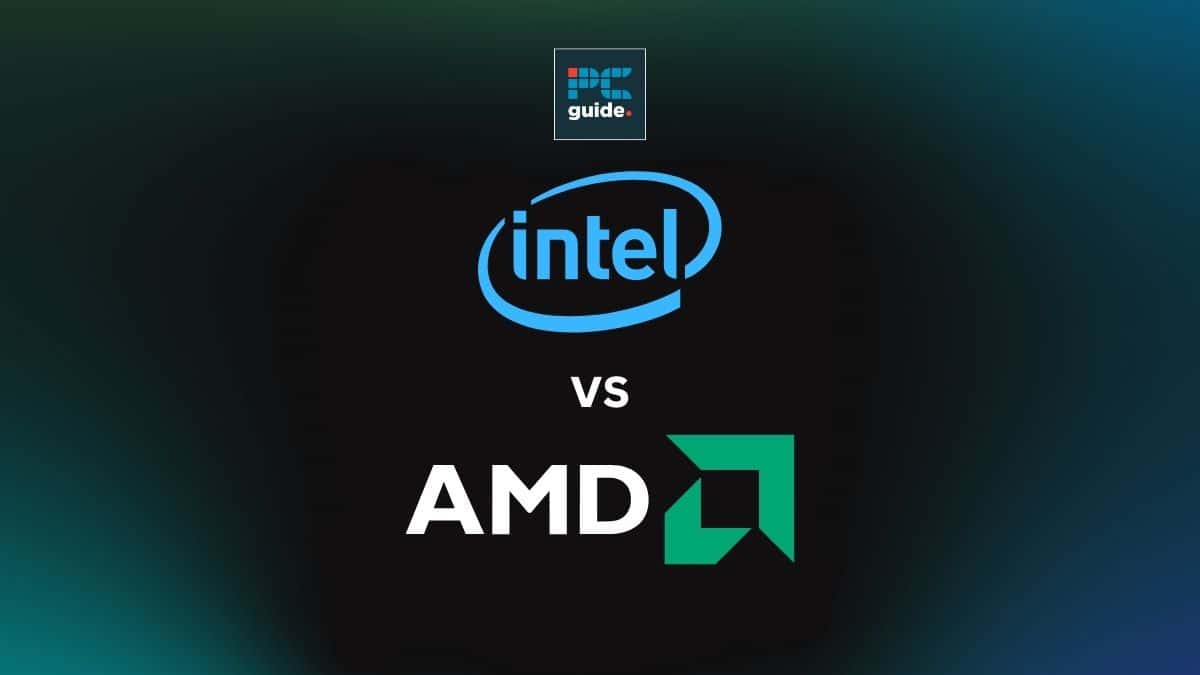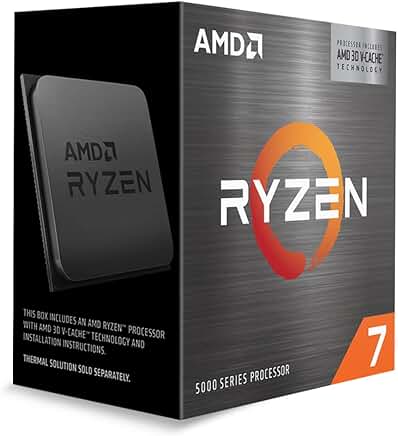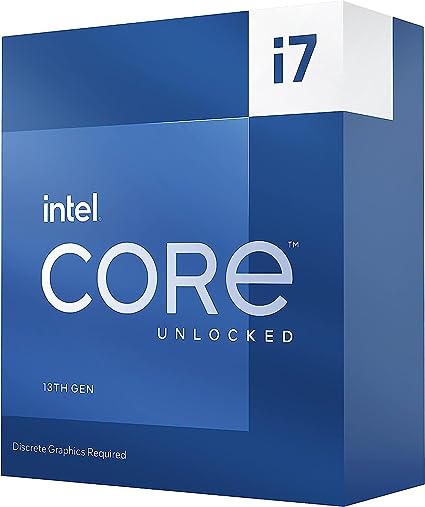AMD Ryzen 5700X3D vs Core i7-13700K – can AMD compete?

Table of Contents
The competition between AMD and Intel has just gotten a little bit tougher with the release of a new 3D V-cache CPU. In truth, it got us wondering if AMD can even compete with one of the best i7-CPUs to ever hit the market. In this article, we will dive into all things AMD Ryzen 5700X3D vs Core i7-13700K, including specs, performance, and cost comparisons, as well as advise you on what CPU is the best value for your buck.
For more AMD content, be sure to check out our additional articles on a full breakdown of the newly announced AMD Ryzen 5700X3D and the best motherboards for the Ryzen 7 5800X3D. For now, though, let’s turn our attention to the AMD Ryzen 57000X3D vs. Core i7-13700K.
AMD Ryzen 5700 X3D vs Core i7-13700K specs
The competition between AMD and Intel has certainly intensified with the release of the Ryzen 5700 X3D and Intel's Core i7-13700K. Each CPU brings its strengths to the table, and a comparison of their key specs is the pivotal starting point to understanding their performance capabilities.
The Intel Core i7-13700K offers a 5.4 GHz boost clock, setting a new high within the i7 series. This contrasts with the AMD Ryzen 5700 X3D, which offers a more modest 4.1 GHz boost. Such a disparity in clock speed translates to tangible performance enhancements, particularly in tasks where higher clock speeds are directly correlated with faster processing capabilities. Furthermore, the Core i7-13700K further distinguishes itself with its core and thread count, featuring 16 cores split between 8 performance and 8 efficiency cores, and 24 threads. This configuration significantly outpaces the Ryzen 5700 X3D's 8 cores and 16 threads. Overall, offering a broader scope for handling multitasking and more complex computational demands efficiently.
| Specs | Ryzen 7 5700X3D | Intel Core i7-13700K |
|---|---|---|
| Cores/Threads | 8C/16T | 16C/24T |
| Boost Frequency | 4.1GHz | 5.4GHz |
| Base Frequency | 3.0GHz | 3.4GHz |
| Total Cache | 100MB | 30MB |
| TDP | 105W | 125W |
| MSRP | $249 | $409 |
The AMD Ryzen 5700 X3D shines with its enormous cache memory, almost 3x that of the 13700K, to improve gameplay directly in its sight. However, the Core i7-13700K finds its strength from an impressive one-two punch of high clock speed and advanced core architecture. A combination that allows this CPU to adapt well to both gaming as well as creative endeavors like content creation and streaming. The 13700K's balanced approach between core count, clock speed, and cache size makes it more versatile than Ryzen 5700 X3D as a whole.
AMD Ryzen 7 5700X3D vs Core i7 13700K performance comparison
The key takeaway in the spec and performance analysis of these two models is that they are geared to different market areas. For instance, the AMD Ryzen 5700 X3D is truly a gaming CPU. Its large cache provides impressive capabilities for users who want smooth and efficient gameplay. On the other hand, the i7-13700K is built to handle a broader range of tasks, offering top-tier performance across various applications. The higher clock speed and increased core count make this model a more well-rounded option for diverse computing needs. With creative individuals prioritizing the i7-13700K and gamers flocking to the AMD Ryzen 5700 X3D, the real test will be when it comes to the price and how deep users will have to reach into their wallets to acquire these models.
Price comparison
The gap between these CPUs and their distinct differences becomes more obvious when discussing pricing. The Core i7-13700K, priced at $409, stands out not just for its performance but also for its backward compatibility. This feature is a significant advantage, especially for users looking to upgrade their CPU without overhauling their entire setup. The Ryzen 7 5700X3D, set to launch at an MSRP of $249, presents a more budget-friendly option, undercutting the i7-13700K by around $150.
This competitive pricing makes the 5700X3D an attractive proposition for budget-conscious users, particularly those who prioritize gaming. Like its Intel counterpart, the 5700X3D also has backward capability, adding value through its compatibility with a wide range of existing motherboards. While the 5700X3D focuses on providing a cost-effective gaming solution, the i7-13700K’s higher price is justified by its versatility, delivering not only for gamers but also for more demanding work-related tasks.
Don’t underestimate versatility
The versatility offered by CPU’s such as the i7 13700K cannot be understated, so do not be suprised when analysing pricing that they are sold at higher price points. They offer far more to users who want to get the maximum out of their CPU.
Is the Core i7 13700K good for gaming?
Gameplay and gaming efficiency will always be a top priority for most CPU users, so we understand that decisions can often come down to just this single factor. In simple terms, yes the Core i7-13700K is an excellent CPU for gaming. Although the CPU aims to balance its priorities between gaming and additional creative applications, it does not compromise on either. The CPU excels in both areas, demonstrating why Intel remains a market leader.
Final thoughts
AMD’s strategy with the Ryzen 5700 X3D is targeted towards budget-conscious buyers, and in this regard, it is truly successful. As a late addition to an already finished generation, the 5700 X3D offers notable value, especially for those looking to enhance their gaming experience without breaking the bank. With that being said, this CPU does fall short of the impressive range and capabilities of Intel’s Core i7-137000K. So when it comes to the AMD Ryzen 5700X3D vs Core i7-13700K, we give the edge to the latter. The Intel model has remained extremely bankable since released in the mid-range gaming market, offering a balanced blend of gaming prowess and creative flair.


